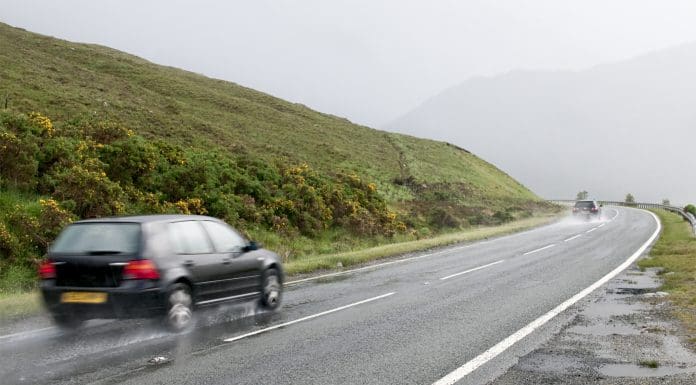Trials led by Kier and TerrAffix have found that a plant-based biochar can successfully remove microplastics in road runoff, which could dramatically change the environmental impact of infrastructure development
The trials were carried out at Swansea University and found that after using a plant-based biochar to filter the road runoff, there were no traces of microplastics.
Led by RSK Group company TerrAffix and Kier, these are believed to be the first laboratory trials in the world to look at the possibility of removing microplastics from road runoff using biochar.
The next step for the collaboration is to look at how effective the solution is over time and it will be put to the test on Kier and National Highways A417 project, with details of the road trial in design now.
Kier has been examining various ways to reduce the carbon in road developments
In June last year, the Kier-TerrAffix collaboration announced they were embarking on a feasibility study to look at how vegetation removed from highways projects could be reused on site to make significant cuts to carbon.
TerrAffix chief technical officer Siôn Brackenbury said that road runoff was composed of a variety of environmentally damaging contaminants including metals (heavy metals including lead, copper, zinc and cadmium), hydrocarbons and microplastics.
“Microplastics enter the water system by collecting in road dust through sources such as tyre wear, polymer-modified bitumen used in road pavement, some road marking paints and road pavement made of recycled plastics.
“The microplastics in road dust are washed into waterways during storms making runoff one of the primary sources of microplastics in water systems. The ubiquitous nature of microplastics in natural environments, alongside their potential to transmit harmful pathogenic microorganisms and enter the food chain with associated risks to ecosystems and human health have caused global concern.”
Cutting carbon and tackling microplastics are key priorities in sustainable development
“Our companies were well aware of the concern about the impact of microplastics entering the environment from the surface water than runs off from our roads and enters the environment, including our water infrastructure, and we wanted to use our collective expertise to arrive at solution,” said Mark Smith, TerrAffix managing director.
“TerrAffix and Kier could immediately see the opportunity to not only use biochar to reduce carbon emissions but to create a second, equally powerful contribution to environmental challenges. Now that the process to remove microplastics has been proven to be successful in the lab, we are, of course, keen to take it on the road to further demonstrate the process in the field. A mobile means of processing vegetation, cutting carbon and tackling microplastics is a huge innovation for the larger infrastructure and development sectors in the UK and, of course, across the world.”
“We’ve been aware of the hidden impact of microplastics generated by the highways network for years”
Matt Tompsett, head of environment & sustainability at Kier Transportation, commented: “We wanted to focus on a solution that could be deployed at scale within highway drainage systems. I had high hopes that biochar would be effective at removing microplastic, but the fact that there were no traces of microplastic is fantastic.
“Globally, there are no published papers at all which look at road runoff and microplastic removal using biochar, so this research is breaking new ground. As with all good research projects, they raise questions as well an answer them. We now know that biochar is very effective at removing microplastic from road runoff, but we don’t know if this effectiveness diminishes over time, so the next step will be to use in a real-world scenario on our National Highways A417 Major Project to find out.”
The post Biochar removes microplastics in road runoff in Kier and TerrAffix trial appeared first on Planning, Building & Construction Today.


